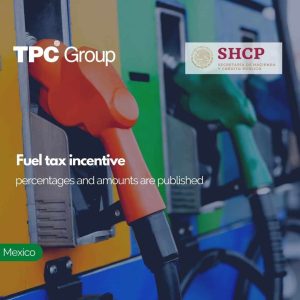This article emphasizes the importance of adequate Transfer Pricing management that minimizes the contingencies that entail financial penalties and costly disputes (as mentioned in a previous article entitled Transfer Pricing Audits).
In early November 2023, the U.S. Tax Court issued a key ruling in response to The Coca-Cola Company’s (TCCC) allegations regarding the Transfer Pricing adjustment based on the Arm’s Length Principle. This verdict, although still subject to the possibility of appeal, will set a decisive precedent within the framework of international control for similar cases.
What Is the Controversy over the Coca-Cola Company and the Internal Revenue Service (IRS) Case About?
The Coca-Cola Company is facing a legal milestone related to Transfer Pricing after the Internal Revenue Service (IRS) made substantial adjustments to its consolidated tax returns covering 2007-2009.
The IRS reallocated more than $9 thousand million in its consolidated revenue to the petitioner, resulting in tax deficiencies of over $3.3 thousand million. The root of these deficiencies lies in Transfer Pricing adjustments under section 482 of the Internal Revenue Code, where the IRS redistributed income from the petitioner’s foreign manufacturing subsidiaries, known as “supply points” located in 7 countries (Brazil, Chile, Costa Rica, Egypt, Ireland, Mexico, and Switzerland).
These supply points produce the concentrates (“beverage base” or “formulas”) used to produce TCCC’s branded soft drinks. These concentrates are sold to independent bottlers, which then blend the concentrates with water, gas, and sugar to make Coca-Cola’s signature beverages. For the Supply Points to be able to manufacture these concentrates, they require the parent company to grant them their licenses, charging royalties under the “10-50-50” method.
The parent company, located in the United States, owns the intangible and includes trademarks, product names, logos, patents, secret formulas, and the manufacturing process.
What Is the Background for this 10-50-50 Royalty Collection?
In 1996, TCCC and the IRS signed a retroactive Final or Closing Agreement valid for the tax period 1987 – 1995, which established that the withholding to be applied by the supply points would be 10% of gross sales with a 50-50 distribution of the final profit with the parent company. Although this agreement, according to the Tax Court, was valid and binding only for the covered fiscal years (1987 – 1995), it continued to be applied by TCCC for subsequent periods.
What Would Be the Main Observation Considered a Potential Tax Avoidance Risk by the U.S. Tax Administration?
Global tax authorities strive to ensure that Multinational Groups pay fair taxes in each jurisdiction they operate. Therefore, the trend of tax administrations at a global level is the detection of possible corporate tax planning, meaning lower consolidated tax collection. In this case, the IRS could consider that the Coca-Cola Company is pursuing a corporate strategy of funneling income abroad as a tax tactic designed to avoid taxes. The U.S. tax administration could interpret that part of this strategy would be that, in the event of an audit, the most adverse situation would involve paying the outstanding taxes along with interest, but that to deal with this contingency, the taxpayer would establish a specific provision and take advantage of the tax statute of limitations.
The Significance of the Validity of the Agreements Entered into and the Establishment of Contracts Aligned with the Creation of Value
Signed Agreements (APAs, contracts, etc.) should not be considered a reference beyond their validity period, especially with the current regulatory changes at a global level. These should be periodically reviewed.
The IRS contends that the Agreement signed with the Coca-Cola Company was valid and binding only for the fiscal years it covered (1987 – 1995). Consequently, and especially after an analysis of the supply chain and the value chain, it questions the profit split method and reinterprets the entire functional and corporate organization of the transaction, considering the Transactional Net Margin as the most appropriate and reliable method to determine the Transfer Pricing adjustment, presenting the foreign manufacturing subsidiaries as the tested parties.
The IRS really reinterprets, ensuring the supporting documentation of the transaction is according to the analysis of the functions, assets, and risks assumed by each of the parties within the creation of value (principle of substance over form).
Along these lines, the function of related manufacturers is comparable to those carried out by maquiladora companies. Therefore, any excess over the margin obtained should have been reassigned to the parent company as a royalty for the use of the intangibles it owns. Likewise, it establishes the use of an internal benchmark for the analysis of the transaction, taking independent bottling companies as comparables as emphasized in the Opinion issued by the Tax Court on November 8, 2023:
“ The IRS considered these bottlers to be comparable to the supply points because they operated in the same industry, faced similar economic risks, had similar contractual relationships with the petitioner, employed many of the same intangible assets (petitioner’s trademarks, trademarks, and logos), and ultimately shared the same revenue stream from the sales of petitioner’s beverages. In essence, the Tax Court held that Coca-Cola’s independent bottlers provided an Arm’s Length profitability benchmark and that, to the extent that the supply points enjoyed profits over that benchmark, the excess should be reallocated to the petitioner as compensation for the use of the petitioner’s intangibles.”
On the other hand, the contracts entered into between the Coca-Cola Company and its foreign manufacturing subsidiaries established that the license would continue for an indefinite period but was cancellable at TCCC’s request without the need for compensation and would not establish territorial exclusivity or authorization the obtaining of additional benefits to the manufacturing subsidiaries for the use of the intangible.
Accordingly, the U.S. Tax Court issued an Opinion upholding the transfer pricing adjustment proposed by the IRS, arguing that the possession of the intangibles belongs to TCCC, validating the methodology selected by the IRS for the calculation of the adjustment and, accordingly, approving the same.
The issue pending ruling, according to the Court, involves the Brazilian subsidiary, which compensated TCCC with dividends instead of royalties. The U.S. Tax Court must now decide whether a net Transfer Pricing adjustment of $882 million violates Brazilian law, which limits the royalties Brazilian companies can pay to their foreign parents.
According to the November 2023 Tax Court Opinion regarding the payment of royalties from the Brazilian supply point, it statesthat:
“(…) TCCC’s patents, secret formulas, proprietary manufacturing processes, confidential ingredients, and blending protocols were essential to Brazilian point-of-supply operations. The point of supply could not have manufactured concentrate without access to those intangibles.”
” (…) TCCC-owned brands generated approximately 98% of the Brazilian supply point’s gross revenue during the 2007-2009 period. Top brands accounted for about 80% of that revenue. Secondary brands accounted for about 20%.”
On the other hand, the recent validation of the revenue freezer regulation in the 3M case sets a precedent, and the final resolution could have significant implications for multinational companies facing legal restrictions on their international transactions. The focus is on how the Court will reconcile U.S. and Brazilian tax laws in this challenging context.
Therefore, we reiterate the importance of establishing corporate Transfer Pricing policies with specialized advisors detecting possible contingencies and preventive and corrective actions to be taken.
At TPC Group International, you will find continuous support from experts in the Transfer Pricing area and international taxation.




